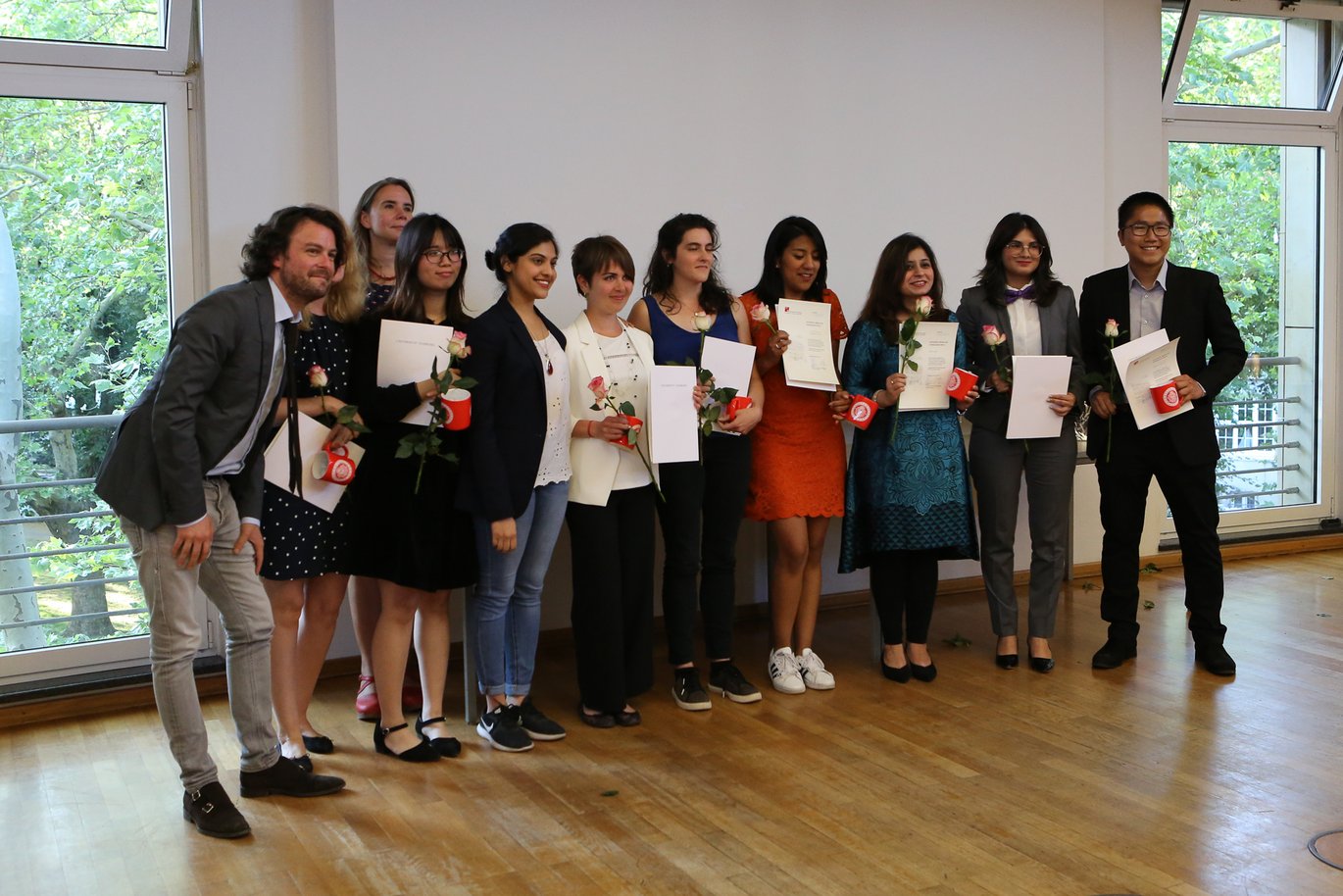Mundus Alumni Win Awards for ‘Best Master Thesis’ at Graduation Ceremony in Hamburg
In June this year, the team behind the Hamburg specialization recognized students' contribution to the knowledge community through their dissertation research work and awarded a cash prize to the three best Master Theses reports which were written by Hamburg Mundusians from 2015-2017 and 2016-2018 cohorts.

Days spent reading in the libraries, nights whiled away analysing data on laptop, life sustained on stale coffee and tasteless takeaway food. The thesis writing period is by far the most challenging part of the Mundusians journey in the two years journalism degree programme.
Every year, Mundusians in all four specializations work hard on innovative research projects in their Master theses and produce knowledge in multiple disciplines including journalism, communications, social sciences and political sciences.
In the graduation ceremony which took place at the beautiful campus of the Hamburg University, in June this year, Marisse Panaligan(2016-2018), Sanika Diwanji(2016-2018) and Helena Gertz(2015-2017) received their Masters degree certificates and awards for the first, second and third best theses in their cohort. Fellow Mundus students and their friends and family were present in the ceremony to celebrate the success of these talented students and graduation of other Mundusians from the programme.
The award winning dissertations explored global issues in the framework of journalism and media studies on topics like ‘#MeToo Movement’ on Twitter, sports journalism in the age of big data and the hoax surrounding climate change discussion on the blogosphere. What made the research of these Mundusians stand out in their cohorts was the currency in the topics and innovative research methods.

Here is a summary of what these award winning projects were about:
‘Moneyball Plus’: Sports Journalism in the Age of Big Data’- Marisse Panaligan (2016-2018, 1st Prize)
In 2003, the publication of Michael Lewis’ best-selling book Moneyball created the mythology of Big Data among professional sports leagues in the United States. Quantification is already central to such a competitive field which determines winners and losers via scorekeeping, but the arrival of Big Data made statistical analysis even more relevant in the production of sports knowledge. A decade later, the development of motion tracking camera technology paved the way to an even deeper datafication of sports—the next stage of the analytics revolution dubbed as ‘Moneyball Plus.’ As an integral component of mediated sport, sports journalism reflects this affinity for numbers. However, one of the key issues is the underlying tension between the god-like attribute of Big Data as a trusted oracle of objective truth and the more humanistic nature of journalistic storytelling. This study examined how this tension plays out in the journalistic process of a data journalism website with a devoted sports section. Quantitative content analysis was used as a methodology to analyse website articles to examine four different aspects of the journalistic process: data sourcing, data use, data visualization, and data contextualization. Marisse’s study drew from the Journalism as Assemblage theory, and she inferred the epistemological practices of the selected website based on the ‘objects of journalism’ that the website put together to produce a journalistic output.
Rallying with #MeToo Analysing Twitter Users’ Framing & Discussion of Sexual Harassment-Sanika Diwanji (2016-2018, 2nd Prize)
Sanika’as main research questions were about the framing of the issue of sexual violence in #MeToo tweets as well as about the co-occurrence of the #MeToo-hashtag with other hashtags. She used framing as her main background for her qualitative content analysis and drew on Bennett and Segerberg concept of connective action.
The focus of Sanika’s research was as to how does a movement like #MeToo shape its identity in the age of social media where she set out to examine how Twitter users expressed their opinions, feelings and comments through #Metoo and thus engaged in framing the larger discussion on sexual harassment and abuse. Her study was focused on questions like how do people attach meaning to the frame/s offered by such an online movement-Do people shape these frames and alter the original meaning and what frames stand out from these articulations and appropriations on social media. Most importantly, how do people perceive and react to a sensitive and oft-taboo subject like sexual harassment and abuse on an open platform like Twitter.
Reconstructing the Hoax Discourse Surrounding Climate Change in the Blogosphere- Helena Gertz (2015-2017, 3rd Prize)
Helena’s study was about mutual accusations of lying about anthropogenic climate change published by bloggers writing in English. It was based on Habermas' Theory of Communicative Action that claims that once someone breaks trust in their dialog-partner by claiming that they are lying, it is very hard - if not impossible sometimes - to rebuild trust and keep discussing about a topic with aims at reaching an agreement. Helena conducted qualitative content analysis in her study and based the analysis on a quantitative part which was done by her second supervisor, Dr. Elgesem.
Congrats Marisse, Sanika and Helena! We wish you more awards and success in the coming years.